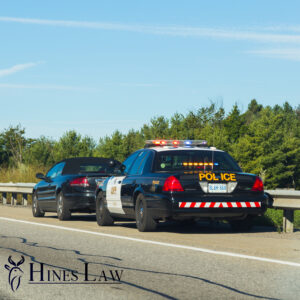WHEN CAN A POLICE OFFICER STOP YOUR VEHICLE?
When can a police officer stop your vehicle or stop you for questioning? Can the officer simply believe you might have done something wrong and decide to pull you over? Can the officer think you “look guilty?” How much evidence or factual information must the officer possess before he can turn on the lights and stop your vehicle?
What makes a search “unreasonable”?

This legal issue comes up often when representing our clients. As many people are aware, the 4th amendment to the United States Constitution protects us from “unreasonable searches and seizures.” So when is the search “unreasonable?” A search is defined as “an examination of a person’s body, property, or other area that the person would reasonably be expected to consider as private” (Black’s Law Dictionary, 7th Edition). In order to justify a search, a police officer must have “reasonable suspicion.”
What qualifies as “reasonable suspicion”?
Well, what does that mean? From a legal viewpoint, it means, “a police officer must point, under the totality of the circumstances, to specific and observable facts that, taken together with rational inferences from those facts, provide a particularized and objective basis for suspecting the particular person stopped of criminal activity”. This means that an officer’s “general suspicion or a mere hunch is NOT sufficient to justify the stop.”
What could give an officer “reasonable suspicion”?
That may or may not clear things up. Basically, the police officer must have some factual reason, that he can describe, to explain later why you were pulled over. For instance, if you were swerving in your lane of traffic, that might give a police officer reason to pull your car over. If the police officer smells marijuana in your car, that may be reason to perform a search. What if a person was acting normal in a crowd of 100 people and a police officer smelled marijuana, would that justify a search? Probably not.
What if a Hispanic person is driving down the road and the cop suspects he may be unlicensed because of his nationality- is that sufficient reason? Probably not.
- Read more about Car accident faqs
Protect your rights if you were unlawfully stopped
The next question would be if a person was illegally stopped and the police officer does discover evidence of a crime. For example, someone is pulled over for no reason and the police officer discovers they are drinking and driving. Well, very likely the evidence of drinking and driving would be thrown out because it was wrongfully obtained from an unlawful stop.
I hope this article better informs you of some of your constitutional rights. If you have been charged with a crime and have questions, call us for a free consultation. Do not try to defend difficult charges alone – the results can be devastating.
